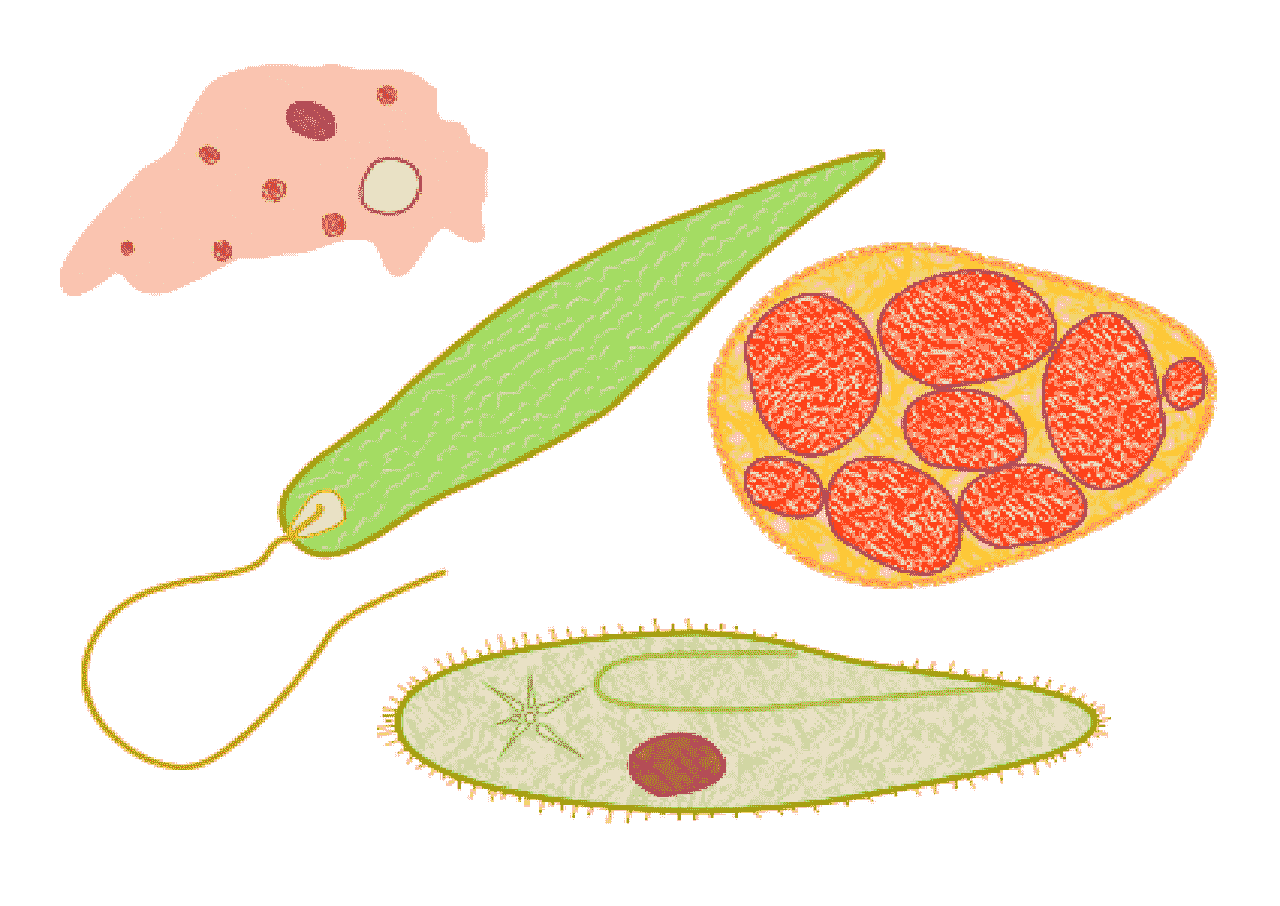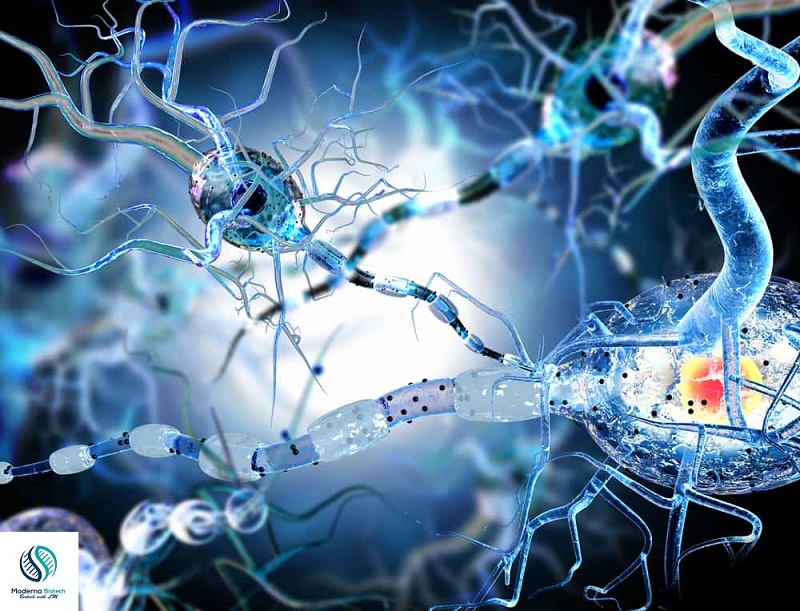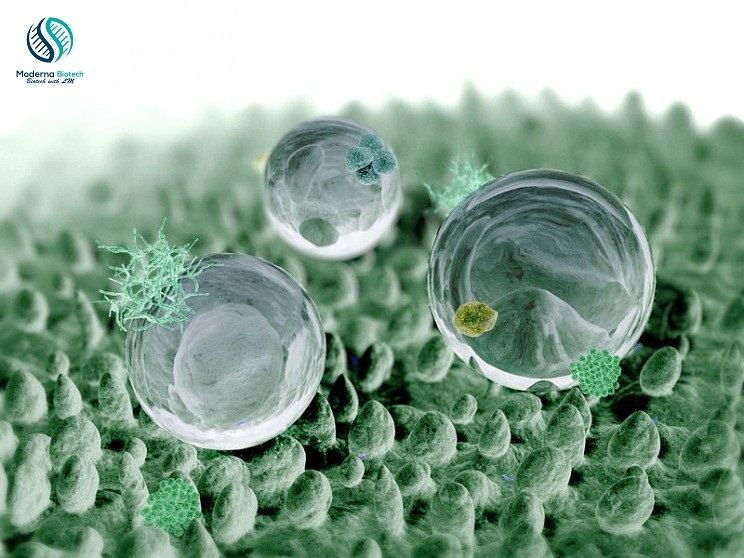Ap Biology Full Review – Latest 2024

Embarking on the journey of Advanced Placement (AP) Biology is like diving into the intricacies of life itself. Whether you’re a high school student gearing up for the exam or someone with an insatiable curiosity about the living world, this AP Biology review is your compass to navigate the fascinating realms of biology.
Table of Contents
The Basics: What is AP (Advanced Placement) Biology?
AP (Advanced Placement) Biology is an advanced high school course that goes beyond the fundamentals. It’s a challenging yet rewarding exploration of living organisms, their structures, functions, and interactions. The course culminates in the AP (Advanced Placement) Biology exam, where students showcase their understanding of biology at a college level. Learn Full Molecular Biology Lab Protocols
The AP (Advanced Placement) Biology Exam: A Glimpse
The AP (Advanced Placement) Biology exam is your chance to shine and demonstrate your grasp of biological concepts. Divided into two main sections — multiple-choice questions and free-response questions — it covers everything from biochemistry to ecology.
Tips for Tackling the Exam:
- Practice Regularly: Consistent practice with sample questions hones your problem-solving skills.
- Understand the Format: Familiarize yourself with the exam format to manage your time effectively during the test.
- Lab Skills: The exam often includes questions about laboratory work, so hands-on experience is crucial.
Key Topics in AP (Advanced Placement) Biology
1. Biochemistry and Cell Biology
- DNA and RNA: Understand the role of nucleic acids in storing and transmitting genetic information.
- Cell Structure: Delve into the intricacies of cell organelles and their functions.
2. Genetics
- Mendelian Genetics: Explore the principles of inheritance through Gregor Mendel’s groundbreaking work.
- Genetic Engineering: Grasp the applications and ethical considerations of manipulating genes.
3. Evolutionary Biology
- Natural Selection: Unravel the mechanisms behind the evolution of species.
- Speciation: Explore how new species emerge and diverge over time.
4. Ecology
- Ecosystem Dynamics: Understand the interdependence of organisms in ecosystems.
- Biodiversity: Explore the richness and variety of life on Earth.

Why Dive Into AP (Advanced Placement) Biology?
1. College Readiness
AP (Advanced Placement) Biology provides a preview of the rigor you’ll encounter in college-level biology courses. It enhances your analytical skills and prepares you for a seamless transition into higher education.
2. Career Pathways
For aspiring scientists, doctors, environmentalists, and researchers, AP Biology lays a robust foundation. It opens doors to a myriad of career pathways in the biological sciences.
3. Personal Growth
Beyond academics, AP (Advanced Placement) Biology fosters critical thinking, problem-solving, and a deep appreciation for the beauty of life. It’s an intellectual adventure that shapes not only your academic journey but also your worldview.
Embarking on the adventure of AP Biology is a journey into the heart of life sciences. As you navigate through cells, genes, and ecosystems, remember that each concept is a piece of the intricate puzzle that is biology. Whether you’re aiming for a top score on the AP Biology exam or simply seeking to understand the world around you, the knowledge gained from this course is a powerful tool that transcends the classroom. So, gear up, dive in, and let the wonders of AP Biology unfold before you!
How Many Units in (Advanced Placement) AP Biology?
AP (Advanced Placement) Biology, the captivating exploration of life sciences, is typically organized into nine units. These units cover a broad spectrum of biological concepts, ranging from biochemistry and cell biology to ecology and evolution. Each unit is a gateway to a specific facet of the biological world, providing students with a holistic understanding of life.
The Four Big Ideas of AP (Advanced Placement) Biology
The framework of AP (Advanced Placement) Biology revolves around four overarching “Big Ideas.” These conceptual pillars form the backbone of the course, shaping the way students perceive and analyze biological phenomena:
- Big Idea One: The Process of Evolution Drives the Diversity and Unity of Life
- Explore how living organisms, from microorganisms to complex multicellular beings, have evolved over time.
- Big Idea Two: Biological Systems Utilize Free Energy and Molecular Building Blocks to Grow, Reproduce, & Maintain Homeostasis
- Delve into the energetic processes that sustain life, from cellular respiration to photosynthesis.
- Big Idea Three: Living Systems Store, Retrieve, Transmit, and Respond to Information Essential to Life Processes
- Uncover the molecular basis of inheritance, from DNA structure to the mechanisms of gene expression.
- Big Idea Four: Biological Systems Interact, & These Systems and Their Interactions Possess Complex Properties
- Understand the interconnectedness of biological systems, from ecosystems to the molecular machinery within cells.

Prerequisites for AP Biology
While specific prerequisites can vary between schools, students typically benefit from having a foundational understanding of basic biology and chemistry concepts. A strong grasp of scientific inquiry and critical thinking skills is invaluable for success in AP Biology.
Required AP Biology Labs
Laboratory work is a vital component of AP (Advanced Placement) Biology, offering students the opportunity to engage in hands-on experiments that reinforce theoretical concepts. Some of the required AP Biology labs include investigations into cellular respiration, photosynthesis, and molecular biology techniques.
Proteins in AP Biology
In AP Biology, proteins take center stage as fundamental biomolecules. Students explore the structure and function of proteins, understanding their roles in enzymatic reactions, cellular signaling, and as structural components of cells.
Functional Groups in AP (Advanced Placement) Biology
Functional groups, the specific arrangements of atoms within organic molecules, are crucial in understanding the properties and reactivity of biological molecules. From hydroxyl groups to amino groups, grasping the significance of functional groups is essential for comprehending the molecular basis of life.
In conclusion, AP Biology is a dynamic and comprehensive exploration of life sciences, encompassing diverse units, overarching conceptual frameworks, and hands-on laboratory experiences. Whether unraveling the intricacies of evolution or examining the role of proteins in cellular processes, students in AP Biology embark on a journey that not only enriches their understanding of biology but also nurtures critical thinking and scientific inquiry skills.
Navigating the Terrain of AP (Advanced Placement) Biology: A Closer Look
Is AP Biology Worth It?
Absolutely! AP Biology offers a challenging yet rewarding journey into the intricacies of life sciences. It not only provides a deeper understanding of biology but also cultivates critical thinking and analytical skills. The course is highly regarded and can be a valuable asset for college admissions.
AP Biology Chapter 6: An Introduction to Metabolism
Chapter 6 of AP Biology is a gateway to the fascinating world of metabolism. It delves into the intricate biochemical processes that sustain life, exploring concepts like enzymes, cellular respiration, and the role of ATP as an energy currency.
Can You Self-Study AP Biology?
Yes, self-study is a viable option for motivated students. Resources like textbooks, online materials, and practice exams are abundant. However, the depth and rigor of AP Biology may make self-study more challenging compared to other subjects.
When Can You Take AP Biology?
AP Biology is typically offered to high school students as a part of their advanced placement coursework. Students often take it in their junior or senior year, depending on their school’s curriculum structure.
Can I Take AP Biology in 11th Grade?
Yes, many students take AP Biology in their junior year. However, the specific grade level at which AP courses are offered can vary between schools.
Can You Take AP Biology Without Taking Biology?
While it’s not a strict requirement, having a foundational understanding of basic biology concepts can significantly enhance your experience in AP Biology. It’s advisable to check with your school’s academic counselor for guidance.
Do You Need to Take Biology Before AP Biology?
Taking a basic biology course before diving into AP Biology is beneficial but not always mandatory. If you have a strong interest in biology and are willing to put in the effort, you can start with AP Biology directly.
Is Biology AP Hard?
AP Biology is considered challenging due to its depth and breadth. The course covers a wide range of topics, and the depth of understanding required for success can be demanding. However, with dedication and effective study strategies, success is attainable.
Does AP Biology Have Chemistry?
While AP Biology is primarily a biology course, it does incorporate some basic chemistry concepts, especially in chapters related to biochemistry. Understanding fundamental chemistry principles can enhance your grasp of certain biological processes.
How Much Do AP Biology Teachers Make?
The salary of AP Biology teachers varies based on factors like location, education, and experience. On average, high school teachers in the U.S. earn a competitive salary, with additional pay for teaching AP or advanced courses.
What Do You Learn in AP Biology in High School?
AP Biology covers a wide array of topics, including biochemistry, cell biology, genetics, evolution, ecology, and more. The course combines theoretical knowledge with hands-on laboratory work to provide a comprehensive understanding of biology.
Does AP Biology Count for Medical School?
Successfully completing AP Biology can strengthen your college application, including for medical school. However, medical schools often prefer applicants to take advanced coursework at the college level. Check with individual medical schools for their specific requirements.
How Long Has AP Biology Been Around?
The Advanced Placement (AP) Program, including AP Biology, was launched in the 1950s by the College Board. It has since become a cornerstone of advanced high school coursework, offering students the opportunity to engage in college-level studies.
Does Khan Academy Have AP Biology?
Yes, Khan Academy offers resources for AP Biology, providing video lessons, practice questions, and other materials. It can be a valuable supplementary resource for students studying AP Biology.
Does AP Environmental Science Have Biology?
Yes, AP Environmental Science incorporates some elements of biology, especially as it relates to ecosystems, biodiversity, and human impacts on the environment. However, the course has a broader focus that includes elements of Earth science and environmental studies.

Unveiling the Benefits: Reasons to Take AP (Advanced Placement) Biology
Embarking on the journey of Advanced Placement (AP) Biology can be a transformative and intellectually enriching experience. Here are compelling reasons to consider taking AP Biology:
1. College Readiness:
- AP Biology is a college-level course, offering a taste of the academic rigor and expectations you’ll encounter in higher education.
- Successfully completing AP Biology demonstrates to college admissions that you are ready for challenging coursework.
2. Deep Dive into Biology:
- AP Biology delves into the intricacies of life sciences, providing a comprehensive exploration of topics like biochemistry, genetics, ecology, and evolution.
- It allows you to go beyond the surface and develop a profound understanding of the principles that govern living organisms.
3. Critical Thinking Skills:
- The course emphasizes critical thinking and analytical skills, essential for success in any academic or professional endeavor.
- Engaging with complex biological concepts fosters problem-solving abilities and a scientific mindset.
4. Lab Experience:
- AP Biology includes hands-on laboratory work, allowing you to apply theoretical knowledge to practical experiments.
- Lab experience enhances your understanding of scientific methods and strengthens your ability to conduct research.
5. Preparation for STEM Fields:
- If you have aspirations for a career in science, technology, engineering, or mathematics (STEM), AP Biology provides a strong foundation.
- The course prepares you for more advanced studies in biology and related disciplines.
6. College Credits:
- Many colleges and universities grant college credit for successful performance in AP exams.
- Earning college credits through AP Biology can potentially save time and tuition costs in your higher education journey.
7. Stand Out in College Applications:
- AP courses, including AP Biology, are viewed favorably by college admissions officers.
- The dedication required to succeed in AP Biology signals to colleges that you are committed to academic excellence.
8. Explore Specialized Interests:
- AP Biology covers a broad spectrum of biological topics, allowing you to explore specific areas of interest.
- Whether you’re fascinated by genetics, ecology, or microbiology, AP Biology provides a platform to delve into your preferred niche.
9. Global Perspective:
- The course addresses global issues related to biology, fostering an awareness of the interconnectedness of living systems on Earth.
- It encourages an appreciation for biodiversity, environmental sustainability, and the impact of human activities on ecosystems.
10. Personal Growth:
- Tackling challenging coursework like AP Biology cultivates resilience, discipline, and a growth mindset.
- Overcoming academic challenges contributes to your personal and intellectual development.
In summary, AP Biology offers a multifaceted journey that goes beyond textbooks, instilling a love for scientific inquiry and preparing you for the complexities of the biological world. It’s not just a course; it’s a stepping stone to a deeper understanding of life sciences and a foundation for future academic and professional pursuits. See Also Should I Take BS Molecular Biology or BS Biology in 2024?

Ap (Advanced Placement) Biology Exam
The AP Biology Exam is designed to assess your understanding of the key concepts and skills covered in the AP Biology course. The exam comprises of 2 main sections: a multiple-choice section & a free-response section.
Multiple-Choice Section:
Content Coverage:
- Questions cover the four big ideas outlined in the AP (Advanced Placement) Biology curriculum: Evolution, Cellular Processes, Information Transfer, and Interactions.
- Topics include biochemistry, cell biology, genetics, evolution, ecology, and more.
Question Types:
- Single best answer questions: You choose the one best answer from four answer choices.
- Multiple correct answer questions: You choose the two correct answers from four answer choices.
Free-Response Section:
Short Answer Questions:
- You’ll answer several short-answer questions (usually 2) that require a paragraph-length response.
- These questions may ask you to analyze experimental data, describe biological processes, or explain concepts.
Long Essay Question:
- There is one long essay question, where you’ll choose one of two prompts.
- This question often involves integrating knowledge from different areas of biology and demonstrating critical thinking.
Lab-Based Questions:
- A set of questions related to laboratory experiments is included in the free-response section.
- You might be asked to analyze experimental design, data, or describe laboratory procedures.
Exam Format:
- The multiple-choice section consists of 60 questions and lasts for 1 hour and 30 minutes.
- The free-response section has 8 questions (2 short-answer, 1 long essay, and 4 lab-based) and lasts for 1 hour and 30 minutes.
Exam Scoring:
- The multiple-choice section and the free-response section are each worth 50% of the total exam score.
- Each section is scored on a scale from 1 to 5, with 5 being the highest.
Preparation Tips:
Review Key Concepts:
- Ensure a solid understanding of the four big ideas and their associated topics.
Practice with Past Exams:
- Familiarize yourself with the format and types of questions by practicing with past AP Biology exams.
Lab Experience:
- Be comfortable with laboratory procedures and data interpretation.
Time Management:
- Practice managing your time effectively, as the exam has both multiple-choice and free-response sections.
Deep Understanding:
- Focus on deep conceptual understanding rather than rote memorization.
Stay Updated:
- Be aware of any changes in the exam format or content.
By preparing comprehensively and practicing regularly, you can approach the AP Biology Exam with confidence and showcase your understanding of biology concepts and skills.



